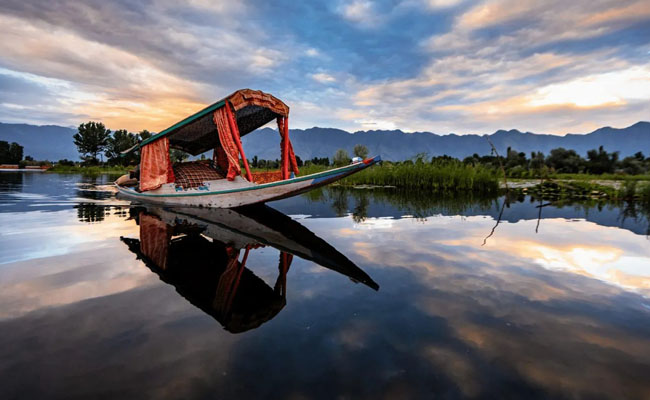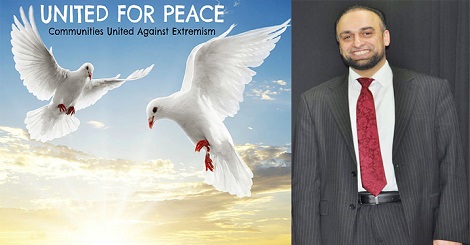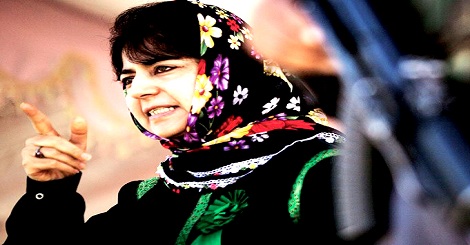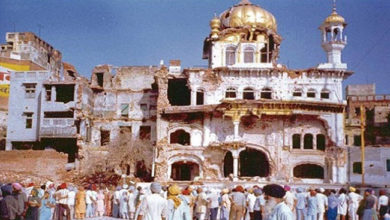Kashmir and the Administration of Justice

(Second part of three-part article series)
Dr. Ghulam Nabi Fai Chairman
World Forum for Peace & Justice January 20, 2024
Advocate Nasir Qadri, Executive Director, ‘Legal Forum for Kashmir’ (LFK) has documented and analyzed India’s institutionalized and systematic discrimination against Kashmiris within the framework of the definition of Genocide and ethnic cleansing under international law. It has further analyzed the laws, policies and practices which have been newly introduced as the transitional phase of settler colonialism to change the demography of Muslim dominated region. Furthermore, it has documented specific repressive measures against the selected individuals, serious human rights violations and crimes under international law, committed against the Civilian population with the intent to maintain this system of colonial domination.
Advocate Jalil Andrabi, Chairman, ‘Kashmir Commission of Jurists’ who was arrested by Indian paramilitary forces (35th Rastriya Rifles) on March 8, 1996, and three weeks later, he dead body was found floating in the river Jehlum, has said that “The judiciary is working under great strain in the state of Jammu and Kashmir. The judges who try to dispense justice impartially are either transferred to a far-flung state in India or forced to resign or denied promotion which otherwise is due to them.”
We know that in particular the minimum standards for the respect of the most fundamental rights and dignity of detainees are absent in Kashmir. More shockingly, India has passed a series of laws that empower its 900,000 military and paramilitary forces to act against the people of Kashmir in violation of international standards. In this context, India has legalized arbitrary arrest, wanton destruction of property and has given its soldiers the right to conduct searches without warrant. Ignoring the application of international humanitarian law. India claims that the Kashmiri defenders are separatist and ‘militants’ and has granted its armed personnel ‘shoot-to-kill’ powers against the people of Kashmir.
Some of these laws clearly violate international standards.
‘Jammu & Kashmir Public Safety Act’ (PSA) enables the Indian military and paramilitary forces in Kashmir to detain civilians for up to one year without trial or due process for a wide variety of reasons, including the exercise of free speech. For example, under this act, an individual whose child has been murdered by Indian army and speaks out publicly against India’s campaign of terror can be detained for up to one year without trial for endangering ‘public safety.’ Also, under this act an individual who produces pamphlets or newsletters that advocates the implementation of the United Nations resolutions calling for a plebiscite in Kashmir can also be arrested and detained without formal charge or due process.
In disturbed areas the army and paramilitary forces are granted sweeping powers of arrest and search without warrants under 54 (a) of the Armed Forces (J&K) Special Powers Act, (AFSPA) 1990. Section 4 (a) of this act grants the army and the paramilitary forces in ‘disturbed areas’ broadly defined powers to shoot to kill in the following terms: I quote: “If… it is necessary so to do the maintenance of public order…fire upon or otherwise use force, even to the causing of death against any person who is acting in contravention of any law or order for the time being in force in the disturbed area prohibiting the assembly of five or more persons or the carrying of weapons or things capable of being used as weapons or of fire arms, ammunition or explosive substances.”
For any of the above actions, article 7 of the act titled ‘protection of persons acting in good faith under this act’ holds that ‘no prosecutions, suit or other legal proceedings shall be instituted…against any person in respect of anything done or purported to be done in exercise of the powers conferred by this act. This means that any member of the armed forces who conducts the above-described human rights violations. – summary executions of unarmed civilians, burning down homes and villages, torture and arbitrary arrest – can do so with complete immunity from prosecution.
Masarat Aalam Bhat, Chairman, All Parties Hurriyat Conference has been-arrested under PSA. He is a political prisoner who has spent 26 years in Indian jails. He is in jail not because he is guilty of a crime but because he believes that the people of Kashmir should be free to decide their own future in accordance with the pledge extended to them under the authority of the United Nations Security Council. The Indian government has kept Aalam in jail for decades on more than 30 charges but never convicted him of a single one.”
Shabir Ahmed Shah, President, Jammu and Kashmir Democratic Freedom Party has spent 36 years in Indian jails. He is known as ‘Mandela of Kashmir.’ Amnesty International has condemned the imprisonment of Shah via AI INDEX: ASA 20/WU 13/94 and demanded his release claiming that Shah was illegally imprisoned under the ‘Terrorist and Disruptive Activities Act (TADA).
‘Unlawful Activities Protection Act’ (UAPA) is a draconian law, mostly used by the Government of India to suppress dissent. Experts call UAPA, jail without bail. Under Section 43(D)(5) of UAPA, it is impossible to get the bail once the chargesheet is filed against a person. One prime example is Khurram Parvez, internationally known human rights defender who was arrested on November 22, 2021, under UAPA. He is the Chairperson of Asian Federation Against Involuntary Disappearances (AFAD). He received ‘Reebok Human Rights Award’ in 2006. He is included in ‘Time’ Magazine’s 100 most influential people in 2022. Mary Lawlor, the UN Special Rapporteur on Human Rights Defenders said, ‘Khurram Parvez is not a terrorist. He is a human rights defender.’ Yet BJP/RSS led Modi government says he is a terrorist.
Mohammad Yasin Mali, one of the most recognizable leaders of Kashmir was arrested under UAPA and was sentenced to life imprisonment. If Yasin Malik is a terrorist as India has charged him, then how to explain the eagerness of a person no less important than then the prime minister of India, Dr. Manmohan Singh to urge Malik during an official meeting on February 17, 2006, to help initiate a peaceful negotiation for the resolution of Kashmir dispute. Dr. Manmohan Singh sought the meeting with Malik because of non-violent ideology that Yasin Malik was pursing since 1994. Ambassador Kuldip Nayyar, former Indian High Commissioner to the United Kingdom, wrote in Redfiff.com on August 7, 1999, “The first militant, Yasin Malik, who raised his gun at a public meeting in the heart of Srinagar, has turned nonviolent and vegetarian. Now he is a follower of Mahatma Gandhi.”
Asiya Andrabi, Chairperson, Dukhtaran-e-Millat was lodged under PSA more than 20 times. Then arrested under UAPA since 2018. Her husband, Dr. Muhammad Qasim Fakto, an educator and a scholar, is serving life imprisonment. He has already spent more than 30 years in Indian jails.
These laws violate articles 9 and 14 of the International Covenant on Civil and Political Rights (ICCPR). It also contravenes the principles of the United Nations which states that ‘a person shall not be kept in detention without being given an effective opportunity to be heard promptly by a judicial or other authority.’ Under Principle 17, it is stated that ‘A detained person shall be entitled to have the assistance of a legal counsel,’ and under principle 18 that ‘A detained or imprisoned person shall be entitled to communicate and consult with his legal counsel.’
(To be concluded)
Dr. Fai is the Chairman, ‘World Forum for Peace & Justice’.
He can be reached at: 1-202-607- 6435 or gnfai2003@yahoo.com





